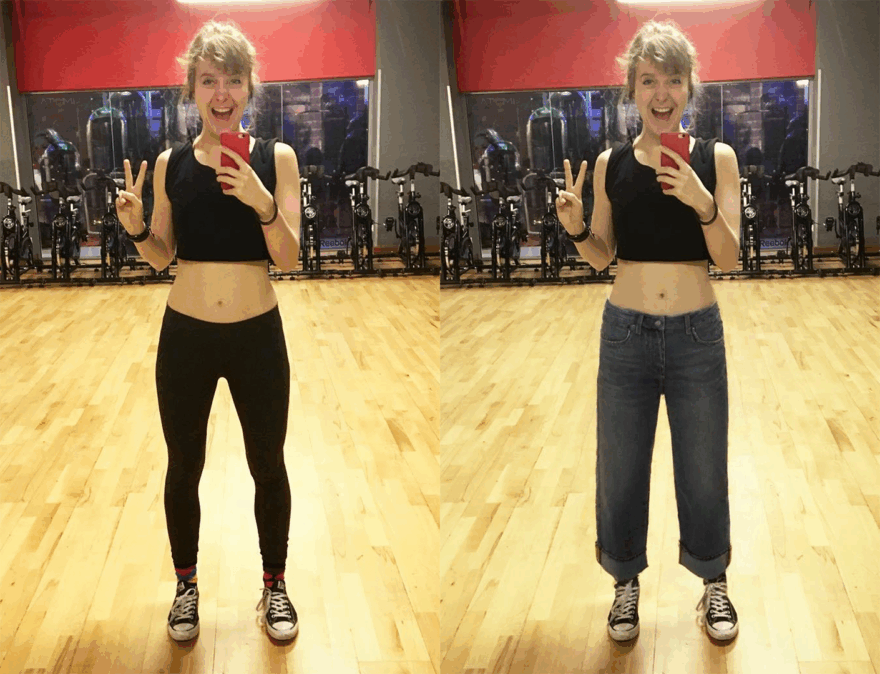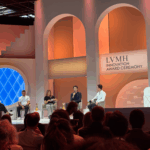Best of Viva Technology 2025
The global apparel market, worth $1.84 trillion in 2025, represents 1.6% of the world’s GDP and is in dire need of new technologies. Corporations are stepping in, but so are startups. At Viva Technology there were 14,000 of the latter. Of course, I didn’t talk to all of them, but I tried to connect with those focused on fashion tech startupsand tackling some important problem (not necessarily fashion-related). Here are four fashion tech startups I selected.
Pigmentoco – waterless dyeing technology [Tunisia]
On the last day of the event, I met with Amal Chebbi, Founder & CEO of Pigmentoco. Both of us tired after VivaTech and with backpacks packed for the flight, we had less than 10 minutes for a short yet meaningful conversation. Amal had reached out to me via the VivaTech app before the event, and we agreed to meet and talk about Pigmentoco. So, what is this startup about?
Pigmentoco is developing a fully waterless fabric dyeing process.
“It’s a clean technology: zero water consumption, zero waste, and zero discharge into marine ecosystems,” says Amal. “Fabric dyeing accounts for 20% of global industrial water pollution. By eliminating water, we eliminate the pollution generated by traditional dyeing methods.”
But similar startups already exist, so I asked about Pigmentoco’s competition.
“Our key differentiator is a single, fully waterless process for dyeing natural fibers. We can dye both synthetic and natural fibers – all without water. We started with cotton – the most difficult natural fiber – using supercritical CO₂. The cotton dyeing market alone is worth $7.5 billion. The textile dyeing and finishing market is about $70 billion.”
As I learned, the project has been validated in the lab, and work is ongoing to implement it on an industrial scale. The next step is pilot projects with brands and filing patents. As for funding, the startup is currently raising a €1M pre-seed round.
Ashirase – a wearable device helping visually impaired people navigate [Japan]
I didn’t meet the Ashirase team during the event. I discovered this startup thanks to VivaTech’s Instagram while waiting for my evening flight to Kraków. I immediately looked up this small company (which, as it turns out, spun out from Honda) and messaged them on LinkedIn. While not strictly a fashion tech startup, it shows how fashion (specifically shoes) can serve people beyond clothing or aesthetics. Ashirase are shoe-mounted devices connected to an app that help blind people with navigation.
After the event, I met virtually with Aki Azumi, responsible for business development at Ashirase. She explained:
“Our product is a navigation system consisting of a device and a smartphone app. The device is an unconventional guidance system for people with visual impairments – it doesn’t use voice commands, but vibrations indicating direction.”
She continued:
“The user needs two devices attached to the shoes. Vibrations appear in three spots: heel, side of the foot, and toes. Depending on which spot vibrates, the person knows which way to go. Visually impaired people must process lots of stimuli on the street. Voice navigation blocks out environmental sounds – like an approaching car. Our concept is vibration-only guidance – no sound, no language. Ears stay free to listen to surroundings, eyes (for the partially sighted) don’t need to follow a screen, and hands are free: one for the white cane or guide dog, the other relaxed, with the phone in the pocket.”
The product has already launched in Japan, where around 700 units have been sold. Ashirase is now looking to expand into Europe and the USA.
WEARFITS – AI and AR powered virtual try ons for fashion & footwear [Poland]
I’d be lying if I said I can look at this startup objectively – I’ve been working there for five years. Still, the company addresses major issues in fashion and footwear: high return rates and unoptimized sales. At VivaTech, I was joined by WEARFITS founders – CEO Łukasz Rzepecki and CTO Krzysiek Hrycak. Here’s how Łukasz describes WEARFITS:
“We’re developing a virtual fitting room for footwear using AR (augmented reality) and for fashion using generative AI. Users can visualize products from an online store on their own photo or point their phone camera at their feet to see shoes in real time. We solve the problem of returns: over 30% of clothes are returned in fashion e-commerce, which is harmful for both the environment and business. At the same time, we optimize sales – one of our clients increased store conversion by 500% thanks to our shoe fitting room.”
WEARFITS already has clients; it is currently working with one of the world’s biggest fashion brands, and has also collaborated with Converse, Glamour Poland, 4F, CCC, and smaller companies like Dutch brand Hockerty.
When asked why WEARFITS will revolutionize fashion, Łukasz replied:
“Online payments used to be a huge problem – you couldn’t just buy something easily, or had to make transfers through clunky bank accounts. Today it’s history – we have payment gateways, cards, BLIK, PayPal, Stripe. It’s the same with fashion. Everyone knows the problems of online fashion: low conversion, high returns. We believe virtual fitting rooms – whether AI or AR-based – are the answer and the future of fashion. As one of the first on the market, we want to set the industry standard.”
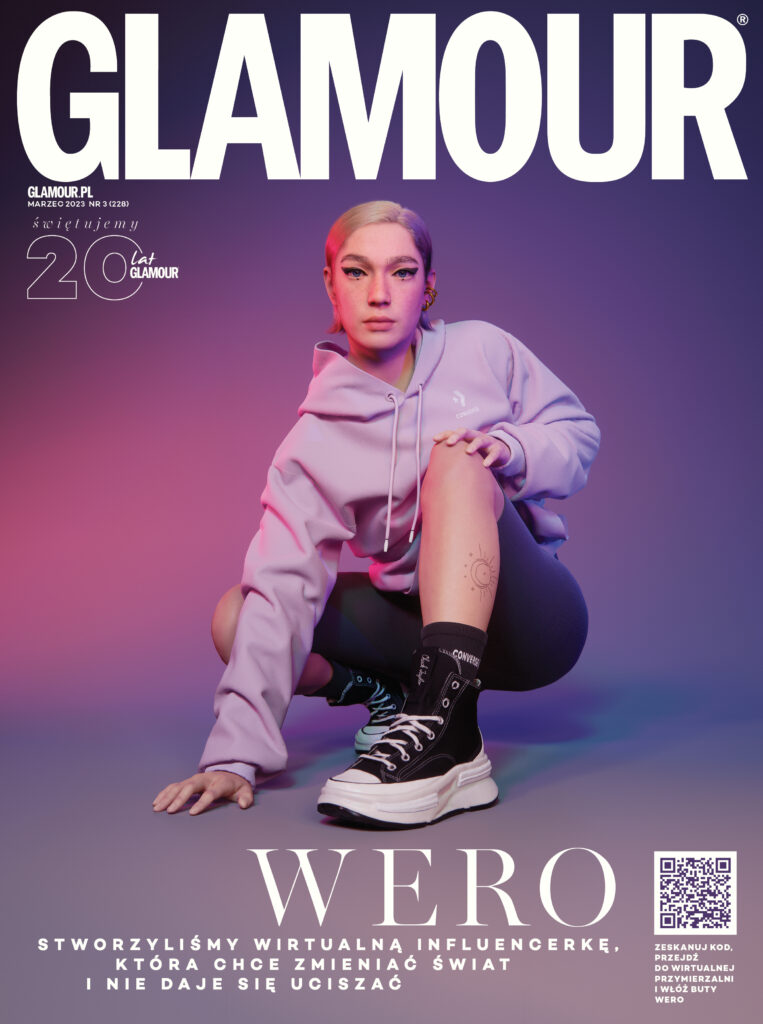
Ilea – AI virtual stylist [Ukraine]
Another interesting fashion startup I met at VivaTech is Ilea. This Lviv-based company is building a clothing styling app. Mark Malko, co-founder and Head of Product, explained:
“We’re creating an AI-powered style advisor, currently focused on women. It replicates the process of a real stylist: builds a personal style profile, then suggests what to wear, what to buy, and what not to buy. We provide a real stylist’s service for everyone. Today it seems reserved for celebrities, but we want to give people the chance to express themselves through style. When everyone looks the way they truly want, the world will be more colorful, not gray.”
The startup solves the problem of not knowing one’s style.
“Through extensive research we discovered most women share the same problem: full closets but still not knowing what to wear daily. That’s exactly what we aim to solve. The market is large. Our target group now is women aged 18–35.”
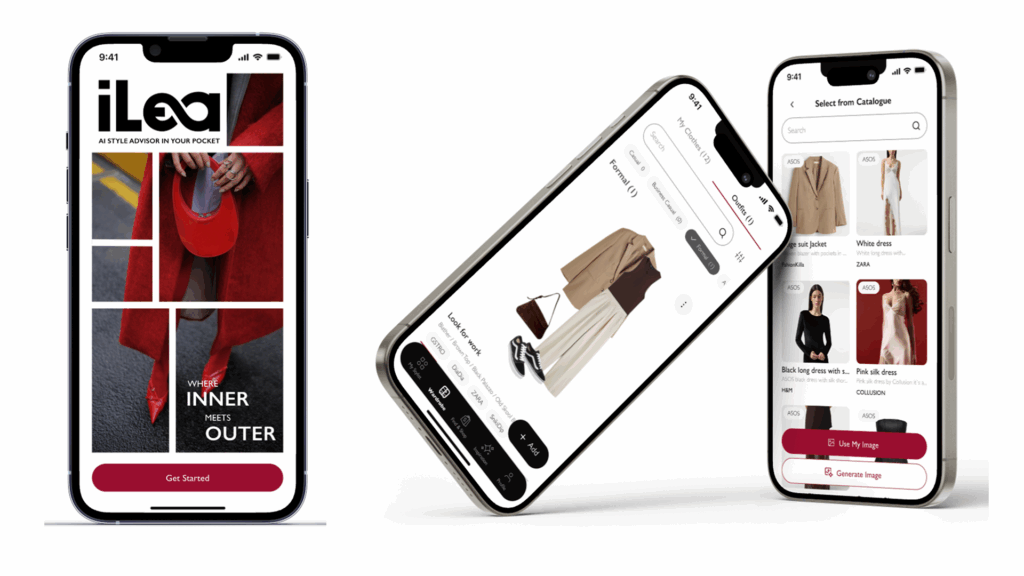
Ilea is a B2C app. As Mark told me, the founders first want to launch the consumer version, with Ilea Business for brands coming later. They’re looking for partners, aiming to integrate brands of all sizes “so everyone can find something perfect for their style.” This is necessary to launch the product. Developing the MVP will take about six months, with a planned launch by the end of 2025.
When asked what they’re looking for, Mark replied:
“We’re open to every opportunity. First and foremost, brand integrations and partnerships – small ones with soul, and big ones like ZARA. We’re also seeking companies from the beauty industry; clothing is just the beginning. Next will be makeup, hairstyles, maybe even behavior. We’re aiming at ‘personality tech,’ not just ‘fashion tech.’”
On the tech side, Ilea combines existing models (language/diffusion), as multiple are needed to fully replicate a stylist’s work. The startup also claims to be building its own AI model. Combining these technologies should allow the system to return a complete style profile in about one minute.
Considering everything I learned from Mark and my own reflections, I think Ilea is a promising product. Attempts at building a virtual stylist have been made before, but I don’t know of a successful case. With today’s language and diffusion models, success in this area finally seems possible.
This article wa originally written in Polish, but didn’t make it to FashionBiznes.pl, but I still think it’s worth writing about these startups.
Illustration by me, using WEARFITS try on. I’m mentioning WEARFITS in the article, although no one asked me for it.
You may also like
-
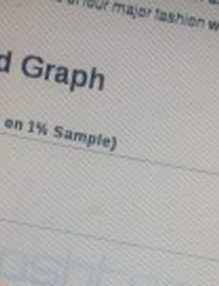 03 Sep
03 SepNYFW: what to expect when it comes to (emerging) technology?
fashion eventCandy Pratts Price said “September is the January in Fashion” and I say that fashion ...
-
 14 Oct
14 OctTeenVogue Fashion University – 5 days left!
fashion eventIT and fashion girl goes to TVFU! I am getting more and more excited! It ...
-
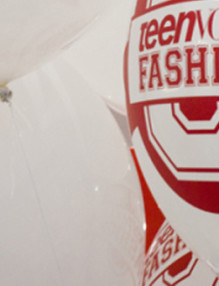 11 Sep
11 SepTeen Vogue Fashion University – yet again :)
fashion eventA week ago at 05:07 AM (11:07 AM UTC +2 – in Poland, where I ...
-
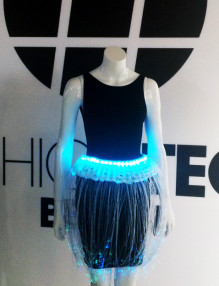 11 Aug
11 AugFashion tech conferences and tech events I have taken part this summer and why you should participate next year
fashion eventNow it’s time for me to post one of my summer entries. I mainly take ...

